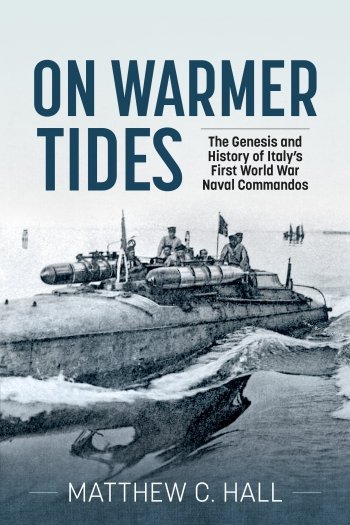-
Załączniki bezpieczeństwa
Załczniki do produktuZałączniki dotyczące bezpieczeństwa produktu zawierają informacje o opakowaniu produktu i mogą dostarczać kluczowych informacji dotyczących bezpieczeństwa konkretnego produktu
-
Informacje o producencie
Informacje o producencieInformacje dotyczące produktu obejmują adres i powiązane dane producenta produktu.HELION
-
Osoba odpowiedzialna w UE
Osoba odpowiedzialna w UEPodmiot gospodarczy z siedzibą w UE zapewniający zgodność produktu z wymaganymi przepisami.
In 1915 the young Italian state became embroiled in the great European conflagration of 1914–18. The infant nation's youthful enthusiasm for the conflict stemmed from a bitter revanchism, which gripped her elites with the concept of a Greater Italy. An Italy which would be a suitable successor to the myriad of renaissance states which immortalized the peninsula with sophistication and thassalocratic potency. Yet of all the images of her past, the Italian political class's favourite lay in the ultramarine imperial portrait of the Venetian Republic. The city state's former glories across the Adriatic, the Istrian peninsula and out into the eastern Mediterranean, granted Italy's radically nationalist, educated strata, a picture of a past which existed a mere century ago and could thus be feasibly restored in a not too distant future.
To undertake the reconquest of Venetian lands across the sea from the perfidious hands of the House of Habsburg though, would require an impossible opportunity to emerge. By the close of 1914, the whirlwind of industrial warfare demonstrated Austro-Hungary’s martial power to be a 19th century phantom. A year later, on a sweltering Roman day in May, Italy and the Habsburg Empire went to war. It is here where anglophone histories of the First World War typically pass a glance at the resultant Italian campaign most commonly portrayed as an incompetent and costly struggle between two second tier military powers. But the ruination of massed infantry on the Isonzo overshadows the hitherto much maligned Adriatic Campaign of 1915-18 which gave birth to the first modern naval commandos — the MAS Flotillas — an organization of previously unheard of operational prowess that served as proof-of-concept for undersea special forces throughout Europe.
On Warmer Tides: The Genesis and History of Italy's First World War Naval Commandos focuses specifically on this pioneering special forces group. In doing so it seeks to move beyond the First World War’s traumatic land-based narrative to luscious littoral waters of Italy's white sand beaches and the wind-blasted rockfaces of the Dalmatian coastline. The MAS Flotillas epic is one of innovation, audacity and determination. Over the course of its wartime development, pioneering new nautical technologies such as manned torpedoes, jumping boats and underwater explosives predicated such daring exploits as the Buccari Bay Raid, the nocturnal assault on the SMS Wien and the audacious infiltration of Pola naval base.








